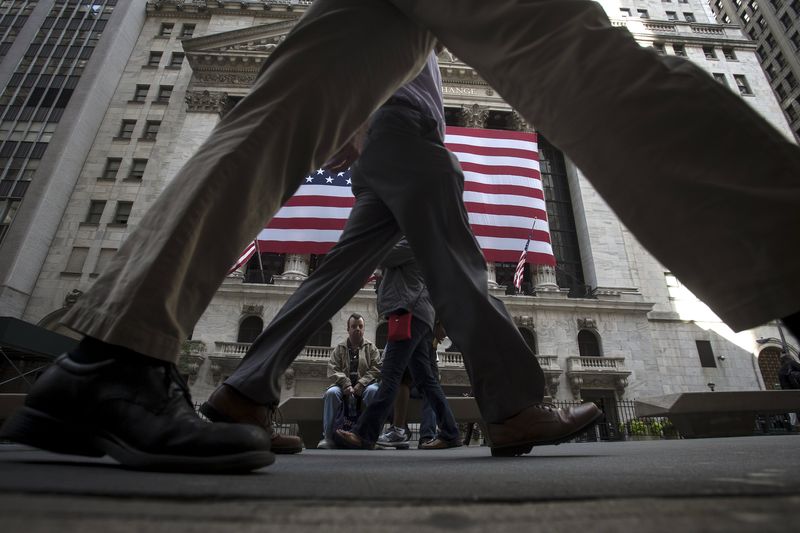By Geoffrey Smith
Investing.com — U.S. stock markets were choppy in early trade on Thursday, vacillating around the gain line, as concerns about the likely pace and scale of monetary policy tightening by the Federal Reserve this year eased a little.
By 9:45 AM ET (1445 GMT), the Dow Jones Industrial Average was up 17 points, or less than 0.1%, at 36,424 points, but the S&P 500 and the Nasdaq Composite, which have borne the brunt of this week’s selling, were up more clearly, by around 0.2% and 0.4% respectively.
The Nasdaq had its worst day in 11 months on Wednesday, falling over 3%. The S&P had also fallen nearly 2% and the Dow had only escaped the carnage by virtue of its heavier weighting of financial stocks, for which the prospect of higher interest rates is something usually to be welcomed.
As the market searched for direction, bears appeared to gain the upper hand again, with Tesla (NASDAQ:TSLA) stock falling another 4.0% to completely close the gap it had created in response to the electric carmaker’s strong fourth-quarter delivery numbers last week. The stock is a key holding of Cathie Wood’s high-profile ARK Innovation ETF (NYSE:ARKK), which has underperformed sharply as long-term growth stories have fallen out of favor this week. Higher discount rates have a particularly strong effect on the valuation models for companies whose potential lies further out in the future. A series of announcements by Ford (NYSE:F), Daimler (OTC:DMLRY) and Chrysler owner Stellantis (NYSE:STLA) this week, meanwhile, have also underlined the increasingly strong competition Tesla faces in the EV space.
What’s true for Tesla is in many ways true for Rivian, too, all the more so since it still hasn’t produced its electric vehicles in any meaningful quantity. Rivian (NASDAQ:RIVN) stock fell 14% to the lowest level since it listed late last year. Lucid Group (NASDAQ:LCID), another highly-valued rival, fell 7.5%.
The market had been unsettled by suggestions in the minutes of the Fed’s December meeting, published on Wednesday, that the first interest rate hike since the pandemic could come as early and March and that, moreover, some Fed policymakers are already pushing for a reversal of the bond purchases that have underpinned market liquidity and risk appetite for the last two years.
The release of weekly jobless claims earlier did little to suggest that the Omicron variant of Covid-19 and the wave of infections it is causing are forcing businesses to lay off staff. Initial claims ticked up to 207,000 from a revised 200,000 the previous week, but remain near their post-pandemic lows. Trade data, meanwhile, continued to point to unprecedented demand from U.S. consumers, with imports topping $300 billion for the first time in December.
Of more concern was the Institute for Supply Management’s non-manufacturing survey, which showed more of an impact on activity from the latest Covid wave. The headline purchasing managers index fell more sharply than expected to 62.0 from 69.1, but the prices sub-index rose to 82.5, just short of its all-time high of 82.9 in October.
Elsewhere, Bed Bath & Beyond (NASDAQ:BBBY) stock escaped the selling pressure, rising 11% after posting sound quarterly results

Source: Investing.com

